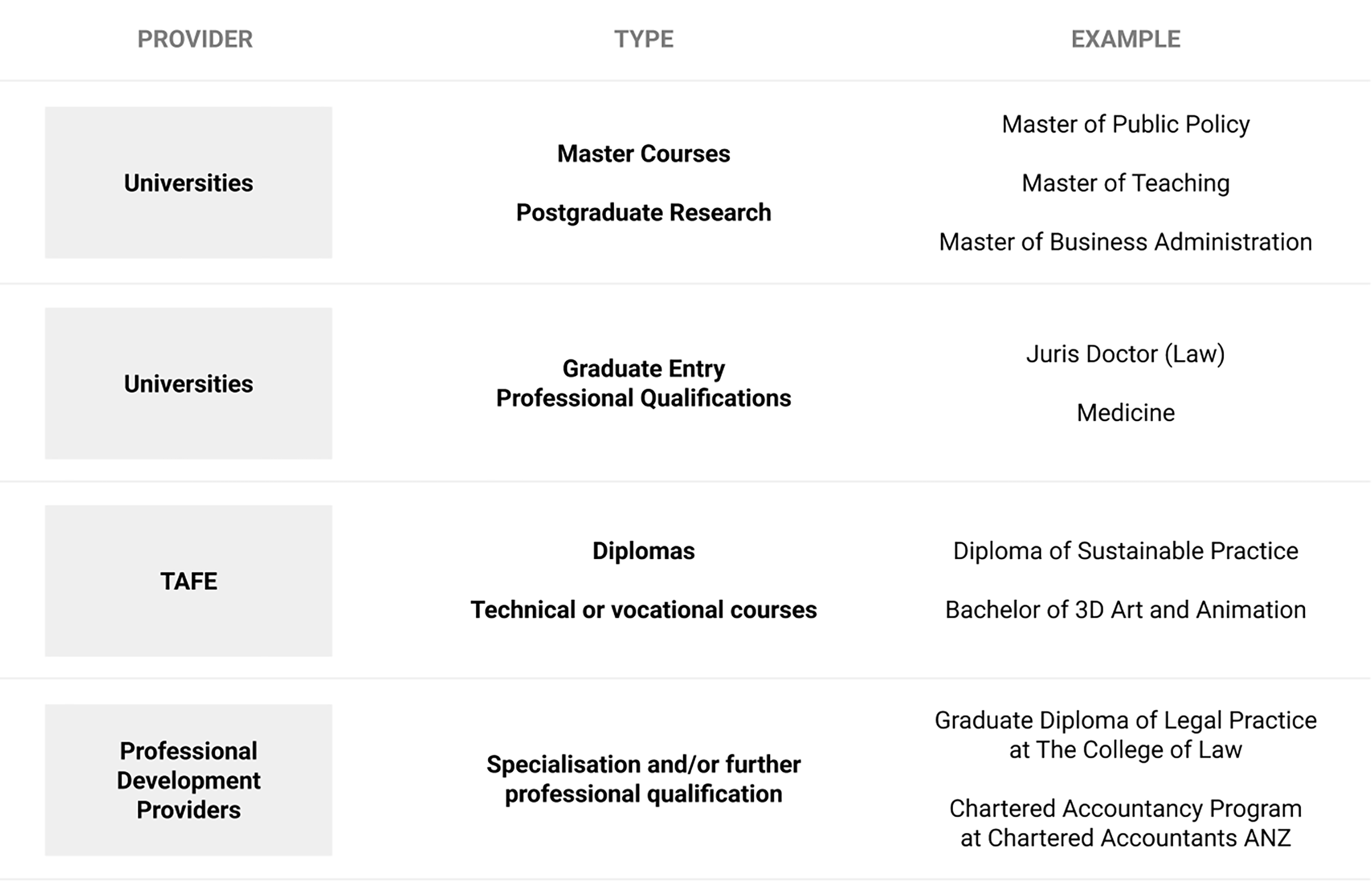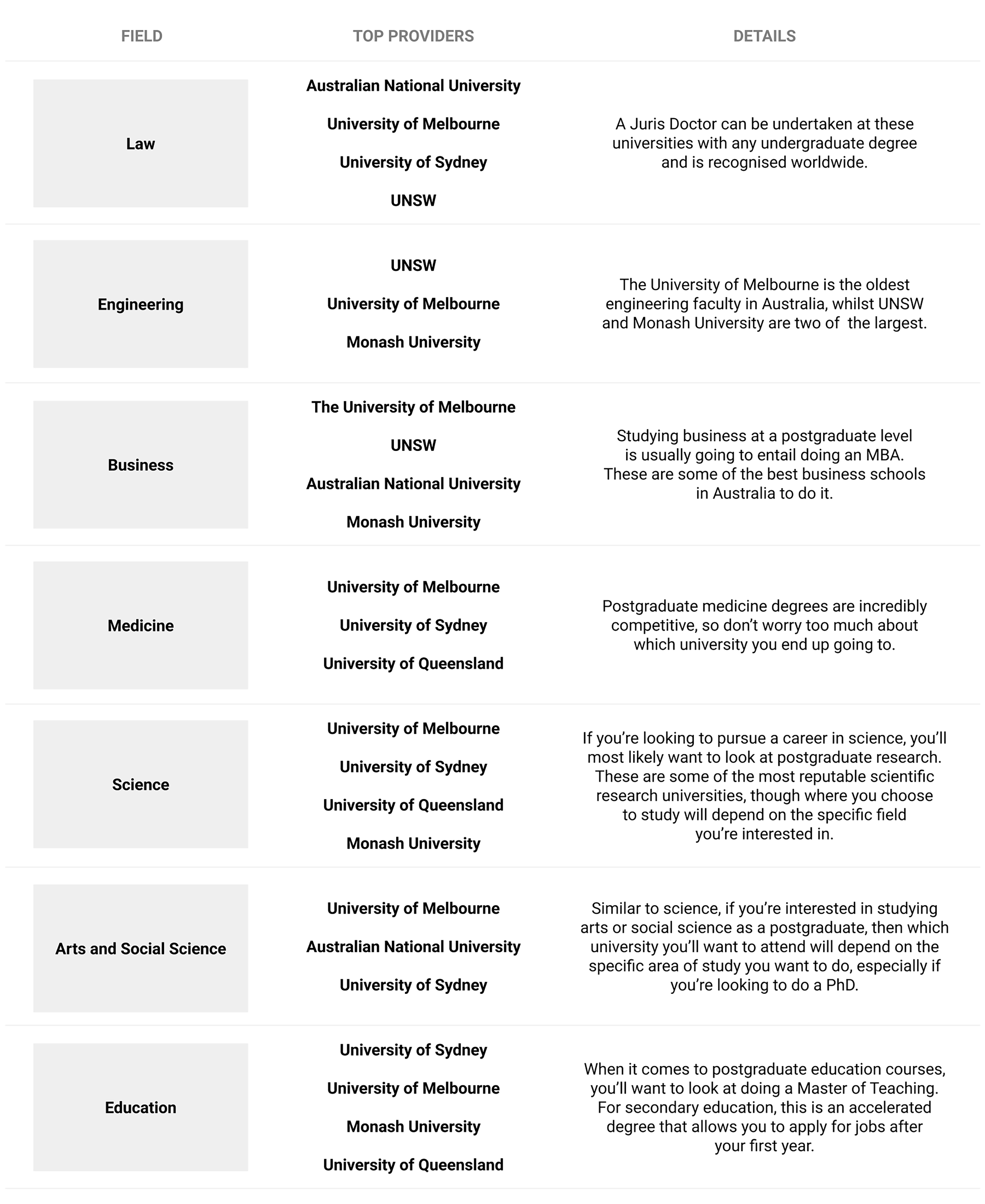Is postgraduate study worth it?
Sam Burnham
Back to school
If you’re anything like me (or, you know, like most teenagers), you may not have known exactly what you wanted to do with your life at the age of 18. Or perhaps you thought you did but your idea of a dream career is now different (I’m still waiting on that contract offer from Manchester United). Or maybe you just feel like you need a change, kind of like Walter White did.
If any of the above sounds like you, then postgraduate study might be exactly what the doctor ordered.
In this article we will cover:
- Is postgraduate study for you?
- If so, what are my options?
Is postgraduate study for you?
There are a bunch of reasons why you might want to pursue postgraduate study, including:
- Your dream career requires postgraduate qualifications;
- You need or want further specialisation in your chosen field;
- You want to enhance your employability and professional network;
- You want to pursue a career in academia;
- You didn’t enjoy or no longer want to work in your undergraduate field;
- You are looking for a change;
- You want to have more options;
- You just have a thirst for knowledge.
All of these are perfectly valid reasons for pursuing postgraduate study. When I finished my undergraduate degree I had no idea what I wanted to do with my career. I just knew that I didn’t want to keep going down the path I was on – I wanted to open up more options and give my indecisive young self time to figure out what I wanted from my career.
Postgraduate study made me more qualified, more knowledgeable, introduced me to new people and ideas and opened up opportunities that I’d never have had otherwise.
However my monster HECS debt suggests it isn’t all diamonds and roses.
So what are the pros and cons of postgraduate study?
Pros:
- Increased job prospects
- Open up new pathways
- Diversification of qualifications
- Specialisation
- Learning new things
- Meeting new people
- Potential career in academia
Cons:
- Financial strain
- Time commitment
- Falling behind your peers
It might seem like the pros outweigh the cons, but it’s important to consider the realities of the time and money commitment postgrad study requires.
The financial strain of postgraduate study is twofold:
1. Studying costs money. A lot of money. Yes, you can generally put most, if not all, of your fees on HECS-HELP, but you’re still going to need to pay it back once you start working!
2. Speaking of work, you won't have much time for it as a postgraduate. Whether you were already a part of the workforce or considering making your grand entrance, working will take a backseat once you become a postgrad student. Between classes, study and assignments, your time will be at a premium.
But don’t fret! You’ve got options. Here are a few tips on how you might be able to ease the financial burden:
- Make sure you check if the course you are interested in offers Commonwealth supported places (CSP). These places are partly paid by the government, and because they are subsidised (rather than a loan), you don’t have to pay it back! This is more common at the undergraduate level, but there are still some postgraduate courses (such as a portion of Juris Doctor positions) that offer CSP places.
- Don’t forget that you can still qualify for Youth Allowance (if you’re 24 or under) or Austudy (if you’re 25 or older) to help ease the financial burden of postgraduate study.
- Consider part-time study. Many postgraduate courses can be done part-time which means you’ll have more time to earn that precious rent money. Some can even be done entirely through night classes so you could potentially hang onto that full time job (though you better hope your time management skills are top tier if you take this route). You’ll have to check with your specific course provider whether part-time is an option for you.
Alright Houston, what’s the solution?
How can I undertake postgrad study?
Postgraduate study can mean a bunch of different things. Here’s a breakdown of some of the most common avenues:

When referring to postgraduate study, most people think of the master’s courses and graduate entry professional qualifications offered by universities. These will all require you to have an undergraduate degree.
Some postgraduate courses don’t require any specific undergraduate degree to apply (hurray!). On the other hand, there are many courses that will require specific prerequisites before you can apply for them, particularly the master’s level courses. However some faculties will be more flexible than others and may accept you if you can demonstrate your suitability to the program through other means like work or volunteer experience.
If you’re interested in academia, science or the social sciences, you might want to move straight into doing postgraduate research, which would generally be a masters by research or a doctor of philosophy (PhD) – ie the less bloody route to becoming a Dr.
Further professional qualifications from professional development providers like the College of Law or Chartered Accountants ANZ will have very strict entry requirements, as they are specific to a particular profession.
On the other end of the spectrum, many TAFE courses won’t actually require an undergraduate degree at all. However, many postgraduates choose to take TAFE courses to either learn new skills or to redirect their career down an entirely new path.
Okay, but who should I choose?
We’re about to lay out some of the top providers for the major postgraduate areas of study. Keep in mind that different providers will appeal to different people for different reasons! Make sure you think about what’s important to you beyond just a university or faculty’s overall reputation. Other things you might want to consider are location, campus, student life and cost.
Without further ado, here’s our list of top providers for each major field guided by the QS World University Rankings:

What about overseas?
If you’re the travelling type, or in the mood to give your life a real gear shift, you may want to consider doing postgraduate study overseas. This can be done either by applying directly to overseas universities, or through study abroad programs run by Australian universities. Or if long-term commitment to another country isn’t your thing, many postgraduate courses allow you to go on exchange overseas – so if you missed out on doing this as an undergraduate like I did, you can make up for it as a postgrad student!
Time to apply
As you can see, when it comes to postgrad study, there really is something for everyone. It’s just a matter of asking yourself what motivates or interests you, whether that’s continuing further down the path you’re on or throwing caution to the wind and trying something completely new.
Stay tuned for upcoming topics or check out or other useful articles here. We’ve got plenty more gold to help you make the leap from top student to top professional!
Got feedback? We’d love to hear from you! Shoot us an email at [email protected]
Author by-line
Not signed up to The Launchpad yet?
Subscribe below to get the full experience!
